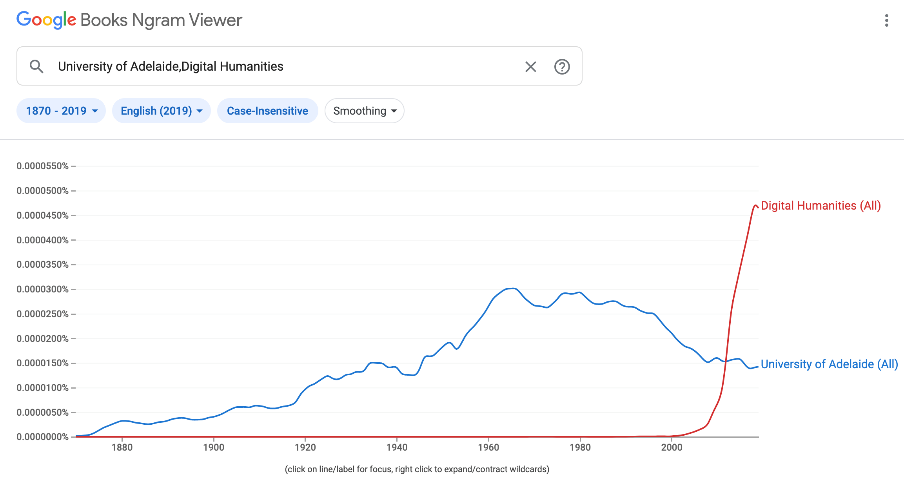Online analysis tools
As more humanities-relevant data becomes available, data providers, individuals and communities have created a range of user-friendly tools.
Some of these tools are accessed through standalone websites, while some are integrated with the data sources. This section introduces a few web-based tools that support simple text analysis such as entity recognition, term frequency, and topic modelling without needing to code. Users interested in learning basic coding skills can find some resources at Learn and connect.
-
Gale Digital Scholar Lab
The Gale Digital Scholar Lab is an accessible text and data mining platform to support entry-level Digital Humanities scholarship and research. Researchers can access Gale’s extensive digitised primary source archive and open-source data analysis tools through the Digital Scholar Lab.
In this environment researchers can expand the scope of their research by using computational tools to complement familiar and traditional methods of humanities scholarship, and develop innovative research ideas without extensive knowledge of coding or programming.With completed sample projects, the Gale Digital Scholar Lab also provides a comprehensive Learning Centre for researchers to familiarise and orient themselves with the platform's capabilities. Read this case study to learn more about how members of the University of Adelaide community are using the Lab in research and teaching.
Note that the Digital Scholar Lab gives access to many, but not all of the Gale primary source archives supported by The University of Adelaide Library. Archives available for analysis in the Lab are listed here. Researchers can also upload their own material for analysis in conjunction with Gale-sourced collections.
Although these collections are extensive, researchers should remember that as a vast majority of archives remain undigitised, collections provided by Gale may not be representative of all relevant archives. -
Voyant Tools
Voyant Tools is an open-source web-based platform designed for distant reading and analysis that provides researchers with over 20 tools. Created for specifically for digital humanities endeavours, researchers can upload a corpus of text in a variety of formats, removing the labour-intensive process of traditional textual analysis.
The simple and user-friendly methods for distant reading provided by Voyant Tools, such as word frequency graphs and visualisations like word clouds, enable researchers to see through a text. These methods can expose previously unobserved information such as patterns, themes or trends that can uncover valuable insights into data or inspire new avenues of research.
Voyant Tools is free for researchers and the general public, and has an extensive guide on how to use the platform, as well as academic examples exhibiting how the tools can be implemented. The platform is simple, accessible, and can be used by researchers without knowledge of programming and programming languages.
-
Google Books NGram Viewer

Google Books NGram Viewer is an online search and distant reading tool that enables users to graph the frequency of user-specified words or phrases within a corpus. The NGram Viewer accesses the Google Books text corpora, which includes scans of millions of printed sources, allowing for searches across collections of various languages and dates ranging between 1500 to 2019.
The NGram Viewer is optimised for simple inquiries using small sets of phrases and search terms and is a valuable tool for researchers to discover hidden patterns and trends within a vast corpus of text. Search perimeters are highly customisable and filtered by date, language and case sensitivity. Advanced search options can be utilised to search for inflection, parts of speech and wildcard results. For larger scale analysis, researchers can download portions of the corpora directly from Google.
